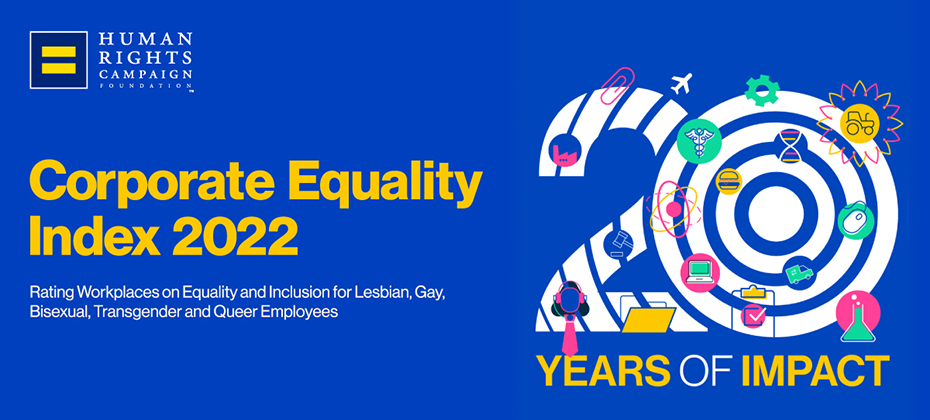World
News about Experian from all over the globe:

We welcome this week’s response by the UK Government in relation to its work on the new UK Data Strategy, and the commitment to creating a new UK Data Act. Innovative data use has a crucial role to play as Britain takes its place on the global stage. Data has the ability to change people’s lives for the better. It can help build a stronger, smarter future, whether that is through existing products and services or by enabling new and innovative solutions to the problems people and society face today. We share the Government’s goal of using data to deliver better outcomes for people across the UK, and to supercharge its economic success. Already today we see data doing great good in the world: it is enabling the deployment of resources from charities and Government where they are most needed; reducing the number of credit-invisible people and combatting loan sharks; preventing fraud and supporting those who fall victim to fraudsters; and delivering unique new insights that set creators and entrepreneurs on the path to their next success. Data played a transformative, positive role in people’s lives during the pandemic, and has the potential to do so much more as we look to the future. It is crucial that data is used and managed within a trusted, privacy centric framework, and that we as industry and Government together continue to educate and empower people to understand how their data is used, and to be confident in its security. Properly-consented, properly-secured data can empower people; it can support the vulnerable; it can help expand and accelerate our economy. We have the talent, the drive and the ambition in Britain to do all of these things. The new framework sets a foundation to enable and empower, making Britain a desirable hub for investment; a great place to work and build a career; an ideal place to begin new ventures or find funding for existing ones. With the right foundations in place, the opportunity ahead will be limited only by our imaginations. For all of these reasons, Experian welcomes the Government’s goal of making this leap forward for the UK, and we look forward to seeing the detail of the new Data Act as it is released in the coming months.

We often share at Experian that we want to be an organisation where people are free to be their true selves and have an equal chance to succeed, a place where everyone is celebrated for bringing their whole selves to work. When our colleagues thrive, they innovate, and contribute to the future of the business. It is in this spirit we welcome you to The Power of You: 2022 Diversity, Equity and Inclusion Report. Our second edition is really an evolution. For the first time, we are introducing our global DEI framework and our focus on people, clients and consumers, and the communities in which we live and work. We’re proud to be recognised as a Great Place to Work, as 90% of our colleagues agree Experian people are treated fairly regardless of their social and economic status, sexual orientation, race or gender. In this report, you’ll see examples of the efforts we’ve made over this last year including the work towards gender equity. Our target is for 40% of our senior leaders to be women by 2024. We have engagement programs to encourage women into STEM roles within the business, while the appointment of Malin Holmberg as CEO of our EMEA and Asia Pacific business alongside the promotion of Jennifer Schulz to CEO of our North America business has increased our percentage of senior female leaders. Beyond strengthening our own processes in promoting DEI, we’re partnering with organisations such as Disability:IN, Code First Girls and the National Urban League to help underserved communities gain fair and equitable access to credit and financial resources. More broadly, we are continuing with our United for Financial Health programme. So far, we’ve connected with 87 million people since 2020 and remaining on track to connect with 100 million people by 2024. We were named in Fortune’s 2021 ‘Change the World’ list for our work to improve financial health. Our aim is to be force for good. This is at the heart of our purpose exemplified by all of our 20,600 employees across 43 nations: to create a better tomorrow for consumers, our clients, our people and communities. Please find our latest DEI report in full here.

Experian is a company built on purpose. Every day we help people make the most of their data to improve their financial lives. This is what drives us and you can read more about our progress in our inaugural Improving Financial Health report. It is our social mission to improve financial inclusion, because fair and affordable access to credit enhances opportunities in life. While we are proud of our achievements this year, we know there is more to do. Over a third of the global adult population still lack access to basic financial services, while one billion people don’t have official proof of identity. 1.7 billion people are also completely ‘unbanked’ and risk being overlooked by the entire global financial services system. And this problem exists everywhere. More than 63 million people in Brazil have unmanageable debts that are affecting their credit rating. Whereas in the US, 28 million consumers are ‘credit invisible’ and an additional 21 million consumers have “unscorable” credit files, meaning they have what’s considered a thin credit file or limited credit history. Much of this comes down to provision of appropriate education and knowledge around good financial management, alongside the tools and products that can empower people in gaining access to fair, affordable credit. Through our community investment programme, we have provided vital support to communities, which was reflected by our colleagues volunteering nearly 25,000 hours of their time over the last year. This is in addition to an investment of US$15.9m in programmes that support our communities, including enhancing financial literacy with partners in Brazil, the USA and the UK & Ireland. Examples here include financial literacy support for microentrepreneurs through Sebrae in Brazil, Words That Count with the National Literacy Trust and Number Confidence Week with National Numeracy in the UK, alongside partnerships in the USA with the National Urban League, Operation Hope and Saver Life which aim to empower Black Americans through financial education. In addition, our social innovation products reached over 21 million people this year, offering innovative ways to verify identity and to strengthen credit profiles. It is our aim to help everyone have fair access to finance, no one should miss out on the opportunities which can transform lives. As the current inflationary environment adds extra pressure on households around the world, we recognise the significance of the role we can play to help ensure people can get through this period of financial pressure. Our new report outlines the progress we have made and restates our commitment to helping everyone improve their financial health in the future. Please read more in the Improving Financial Health Report.

We are delighted to celebrate Pride Month this June, and to mark the progress we are making to support our LGBTQ+ colleagues and communities around the world. A few of our milestones this year include: The addition of trans-inclusive healthcare to our UK and U.S. employee benefit packages. Receiving a Silver Award from Stonewall for our commitment to inclusion of LGBTQ people in the workplace. The continued use of our partnerships with Mermaids, Switchboard and Terrence Higgins Trust (THT) to provide resources, offer workshops and support campaigns that raise awareness of the discrimination faced by the community worldwide. Becoming a signatory of the Brazil Corporate Forum for LGBTQA+ companies. Participating in the first diverse talent recruitment fair organised by the Colombian LGBT Chamber of Commerce. Achieving a 100% rating on the Corporate Equality Index from the Human Rights Campaign Foundation in the U.S., and being designated a Best Place to Work for LGBTQ Equality for the fourth consecutive year. Providing a process to assist trans and non-binary consumers with name changes to their Experian credit reports. Throughout the month, employee groups across our regions are hosting events that support our LGBTQ+ employees in their careers, that educate and inform allyship inside our business, and which help accelerate our ambition of delivering tools and services that create better financial health in the community. And yet, while we celebrate, we recognise that the LGBTQ+ community still faces many forms of discrimination around the world. We will continue to look for opportunities to support our Experian colleagues and customers who identify as part of the LGBTQ+ community, and to listen to those with lived experiences, so that we can better understand the role we can play in creating a better tomorrow and a stronger organisation – for everyone.

Last year, while still in the grip of the effects of the pandemic, Experian North America continued to reinforce our core purpose and People First approach through creating a workplace culture of belonging, employee wellness and personal and professional growth. It’s especially rewarding that this commitment, along with our financial planning and consumer education resources, were highlighted in this year’s Fortune 100 Best Companies to Work For award recognition. For the third year in a row, Experian North America was named to the prestigious national list that honors the “100 Best companies that adapted to massive changes in the workplace by prioritizing employee well-being, inclusion, purpose, listening and care wherever their employees are.” To determine this year’s 100 Best list, Great Place to Work®, America’s largest ongoing annual workforce study, surveyed more than 870,000 employees and gathered data from companies representing more than 6.1 million employees. The survey enables employees to share confidential feedback about their organization’s culture and the employee experience. Great Place to Work cited that “Experian has expanded benefits to include fertility, surrogacy, and adoption coverage and enhanced its higher education financial planning resources. It’s also tackling workplace equity from the very start of the hiring process with an in-house tool called Lingo that identifies gender-biased language in job descriptions.” In addition, “Experian began to hold conferences for employees to discuss their personal struggles during the pandemic. Since then, the company has continued to improve wellness initiatives, while staying committed to flexibility around employee schedules.” “At Experian we’re especially proud of our purpose-driven culture, where all our people play a role in making a positive impact in the day-to-day lives of the consumers, clients and communities we serve. This includes taking care of each other, celebrating our individual differences, and delivering on our purpose to create a better tomorrow for people everywhere,” said Jennifer Schulz, Chief Executive Officer of Experian North America. “This recognition from Fortune reflects the very best Experian offers to all those we help, and I couldn’t be prouder of our people and the work we’re doing.” At Experian, we believe bringing together unique experiences, diverse backgrounds and individual differences creates a dynamic, innovative and inspiring workplace — one reflective of the clients and communities we serve around the globe. This is why it’s such an honor to be recognized alongside other outstanding brands on the Best 100 list that prioritize their employees. This recognition continues the momentum we’ve built in recent months with other industry accolades and awards. In February, Experian North America was named a “Best Place to Work for LGBTQ Equality” for the fourth year in a row in the Human Rights Campaign Foundation’s Corporate Equality Index 2022, receiving a perfect score in the foundation’s evaluation. Last year, Experian North America was named to the Fortune Best Workplaces for Women™ 2021 among large organizations and 100 Best Large Workplaces for Millennials. In addition, we were ranked the #1 Top Workplace in 2021 by the Orange County Register for the second consecutive year.

Simplifying healthcare for all - that seems like a tall task to accomplish considering the last two years. What we once considered simple activities in our daily lives, such as going to the store to buy groceries or getting children to school, was upended by a global pandemic. Factor in the massive changes in healthcare operations, and it is clear the system needs to continue to evolve. It also cements my belief that Experian Health’s mission is even more relevant and achievable today than it was pre-COVID 19. In fact, this aspiration of simplifying healthcare for all is top of mind for me and Experian as we go into HIMSS22, the premier healthcare conference being held in Orlando this week. The healthcare industry has undergone massive changes since the fateful announcements in early 2020. While adapting to the pandemic was a huge undertaking for many organizations at the onset, those who opted to embrace change saw the payoff as they simplified administrative tasks and created efficiencies for both providers and patients. We saw organizations eagerly adopt technology and tools to take paperwork digital, streamlining the patient intake process and improving the accuracy of the data received. Instead of phone calls, patients and providers scheduled appointments and communicated online through secure portals saving time and manpower. The use of telehealth appointments allowed providers to see more patients and do so safely. Who would not want the simplicity of carving out just a few minutes from the comfort of one’s home for a non-urgent appointment? We are proud to have been a part of this evolution helping healthcare organizations pivot in the face of such a daunting predicament. For example, through our digital front door solutions, patients were able to schedule and pre-register for appointments online avoiding extra time spent in waiting rooms. We verified hundreds of thousands of identities quickly as Americans lined up for COVID-19 testing and vaccines. Our mobile payments system served to make the financial aspects of care easier to fulfill. Providers turned to us to help recoup costs from the government and insurers for COVID-19 care with our insurance discovery solution. Experian will not stop here, and we will continue to innovate high-tech, data-driven approaches to simplify healthcare for all; I hope the industry doesn’t stop either in tackling tough operational challenges using the power of technology and data. With this in mind, I look forward to hearing about the lessons learned by the industry as well as future innovations from the participants at HIMSS22. It’s the “can’t-miss healthcare conference of the year,” and we are pleased to be a sponsor and exhibitor once again. For those attending, visit us at Booth #3059. Taking the conference playbook of a hybrid approach with both digital and in-person participation, the healthcare industry should follow suit. Let’s certainly keep valuable in-person mechanisms in place, but not forget about the last two years and the incredible progress made that moved the industry forward. At Experian, we strive to help clients operate more quickly, smoothly and efficiently across the healthcare journey. With a new mindset in the industry and the tools available to act on change from providers like Experian, simplifying healthcare for all is not just a mission but an outcome we must achieve. Tom Cox is President of Experian Health.

At Experian we pride ourselves on having a great People First culture, it’s something we are all proud of and want to protect. We do this through a dynamic, positive and inclusive working environment for all employees, with the tools and support they need to grow and develop. With that in mind, we are hosting our first ever Careers week for our employees around the world. During Careers week, 70 sessions are taking place across different time zones, with a mix of inspiring speakers, bitesize learning events and insights into new career resources and tools coming in 2022 supporting the ongoing development and learning of our people The theme for this year’s Careers week is ‘Be World Ready’. Put simply this means: Being Aware – having a good understanding about what is happening to jobs and careers in the marketplace Being Relevant – keeping your skills and experiences fresh and meaningful Being Marketable - making sure you stand out from the crowd Our employees will get the chance to hear from internal and external speakers, including experts in their fields sharing the latest thinking on career development and learning. Leaders from Experian, Google, AWS, Microsoft and many others are part of this exciting event. The whole week has been designed to give people the space to learn and reach their highest potential. To find out more about careers at Experian, visit our global careers page.

Advocating for equality isn’t just my job, it’s a personal passion of mine. In my hometown, I’ve served as part of the organizing committee that planned Chicago’s Gay Black Pride. Working with a company that has values similar to my life’s work is an honor. That’s one of the reasons why I’m excited to share that for the fourth year in a row, Experian has been named a “Best Place to Work for LGBTQ Equality" from the Human Rights Campaign Foundation. Attaining a 100% rating from the Human Rights Campaign Foundation’s Corporate Equality Index is reflective of the work we’re doing to end discrimination against LGBTQ+ people and bring about fairness and equality for all. Our PRIDE employee resource group organizes programs year-round that raise awareness of issues including transgender rights, encouraging intersectionality with our other employee resource groups, and leading partnerships with organizations such as the Trevor Project and Out and Equal. It’s critical that these efforts within our organization extend to how we serve our communities externally. As an example, yesterday, we shared the process we now offer to help transgender and non-binary consumers update their name on their Experian credit report without impacting their credit history. Earning a perfect score by the nation’s largest LGBTQ+ civil rights organization is a tribute to our coworkers and company leadership, and continues to serve as an inspiration to follow our mission. This year, we will continue our efforts as we focus on credit education and awareness for those who are credit invisible within the LGBTQ+ community. Fostering and nurturing a culture of inclusion is part of our greater purpose. We are proud the HRC has recognized our work so far, and we look forward to what’s to come. For more information about Experian’s commitment to equity and diversity, visit experian.com/diversity

As a leading information services company, some of our chief priorities include protecting and ensuring the accuracy of consumer information. The integrity of our data is critical and aligns with our efforts to advocate for financial inclusion for everyone. Data accuracy is particularly relevant for the transgender and non-binary community with regard to name changes. It’s important to note that information about gender/sex, age, race, ethnicity, religion or sexual orientation is not included in credit reports or scores. However, when someone transitions, and changes their name, their credit and financial history may still be tied to their birth name, which is also referred to as their “deadname.” This can unintentionally “out” the consumer or force them to establish a new credit history. At Experian, we have a process through which those who identify as transgender and non-binary can provide legal documentation to prove their identity without the negative emotional and financial impact. You can learn more about this process here. When you affirm your identity and update your name, Experian will also suppress your deadname so it does not appear on your Experian credit report. Taking these steps only changes your name on your Experian credit reports, and you may need to inquire about the process with other credit bureaus. Fair access to credit tools is part of our mission, as is providing these services with dignity and respect. At Experian, this is our purpose, advocating for all communities and people. This is financial inclusion.